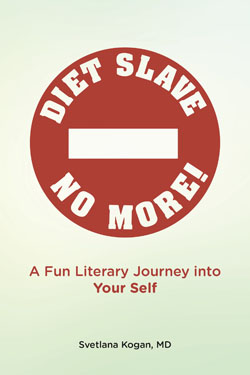Many patients, young and old, ask questions about coffee during their wellness checkups and I am setting some of these popular Q & A here for everyone’s benefit, in case you had no time to ask your doctor:
Q: What would you say the worst effect overall caffeine has on the body?
A: As a huge coffee fan and as a physician, I will tell you that caffeine use in moderation, does not have any negative effect on the body. However, if someone is downing 4 or more 12 oz cups of coffee per day, they are sure to experience some very annoying side effects of which jitteriness and restlessness are the worst ones.
Q: Which parts of the body is hindered by caffeine?
A: Coffee is a stimulant so it does not hinder any part of the body but it does create overacidity when used in excess and that can lead to GERD (gastro-esophageal reflux disease).
Q: Are there studies that show a correlation between caffeine and decrease of prodactivity?
A: There are no large randomized studies proving either positive or negative correlation between caffeine and productivity but ANY coffee buff will tell you that if you use caffeine in moderation, it really helps to focus your attention on task at hand, and sharpen your senses in general, so that you become more efficient in processing all sorts of information coming into your brain.
Q: Why would you recommend somebody eliminating caffeine from their diet altogether?
A: I would do that ONLY if he or she suffers from uncontrolled acid reflux OR uncontrolled hypertension. Thanks to the many treatment options for either of these conditions, I practically never have to eliminate coffee from any of patients’ regiments at all. As I have described in my book ‘Diet Slave No More!’ any kind of food restrictions are only temporary. Eliminating something you really like from your diet creates disturbance of internal balance, and that will be resented by your body at the core.
Q: Were you once a coffee drinker before? If so, how/ when did you know it was time to stop drinking so much caffeine?
A: Sure. How would I get through Cornell University and Sackler Medical School without my coffee mug? However, since like 20% of other folks, I was born with a condition called ‘Hiatal Hernia’ I had to learn how to control my caffeine intake fairly quickly. In this condition, your stomach is protruding slightly above the diaphragm so that the acid has an easier time spilling over into your food pipe (esophagus). Since coffee increases acidity, I had to learn to limit myself to two cups a day, and never after 4 pm. Having coffee earlier in the day helps me to avoid having the acid spill over into my food pipe when I lay down to sleep.
Q: I’ve heard that caffeine is bad because it attacks your adrenalines which effects your stress. What is that all about?
A: Caffeine does not “attack anything” – it causes a release of adrenaline by your adrenal glands as does flirting with a cute guy on the street. However, just like excessive flirting can lead to certain consequences, excessive caffeine can exhaust your adrenal gland and lead to a crash and fatigue. As I have written in my book, you are much more likely to be stressed out about denying yourself the food or drink you love, rather than suffer from adrenal fatigue due to caffeine use. Moderation my friends, moderation.
Q: What can people replace caffeine with? What are natural ways to get caffeine? How do you feel energized?
A: There is no need to replace coffee with anything but if you are using coffee excessively and want to cut down, try these tips:
1) Go for a walk to get fresh air – to get energized
2) Meditate – to enhance your focus
3) Get into the habit of eating regularly – to keep sugar and fat metabolism healthy.
4) Get a good night sleep to avoid the need for coffee as a “wake-me-upper”
Q: What are some tips for people who are trying to lean off of caffeine? How does somebody cope with withdrawal symptoms? What withdrawal symptoms can you experience?
A: For the first part of this question, please see my response above. Withdrawal will only happen if someone is using 3 or more cups of coffee per day. It is characterized by headache, foggy head, muddled thinking process, and fatigue. These symptoms are unavoidable if you are a coffee-crazed person trying to wean, but the lucky thing is that caffeine withdrawal is very short-lived. You may suffer anywhere between 2 to 5 days and that’s a small price to pay for becoming a smart caffeine consumer. Feverfew herbal extract and magnesium pills will help quell a withdrawal headache, while eating proteinaceous regular meals and going for walks will help to clear up your foggy brain.








